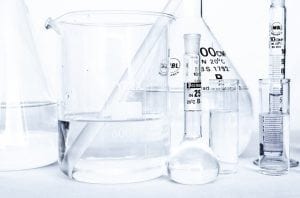A few years ago, Dr. Thomas Weimbs, a researcher at the Weimbs Lab of UC Santa Barbara, performed a study on mice models of polycystic kidney disease (PKD). During the study, Dr. Weimbs sought to understand how nutrition and diet impacted PKD progression. As he fed the mice less food or provided them with beta-hydroxybutyrate, Dr. Weimbs noticed something stunning – the cysts in the mice began reducing in size. After further examination, Dr. Weimbs found that beta-hydroxybutyrate, as well as a specific ketogenic diet, helped the mice enter into ketosis. It was this that helped reduce the cysts and improve kidney function.
More recently, shares Medical XPress, Dr. Weimbs and his research team explored whether a ketogenic diet in humans with PKD was also effective. The study focused, in particular, on autosomal dominant PKD. Within the study, the research team found 131 individuals with ADPKD who were currently on, or had previously undertaken, the ketogenic diet.
Interviewing Patients with ADPKD about the Ketogenic Diet
After identifying and recruiting these individuals, the research team began interviewing the patients on topics relating to safety, ease, health, and kidney function. Findings show that:
- 113 patients felt that a ketogenic diet benefited their overall health.
- 88 patients reported improvements in health problems related to their PKD. Additionally, 84 patients found that a ketogenic diet improved their blood pressure.
- 118 patients felt that this diet helped improve their weights.
- While many patients felt that it was feasible to partake in this diet, at least half of the patients also took some time off of the diet.
- Altogether, most people found that the ketogenic diet was safe and well-tolerated. However, some individuals experienced reactions such as hunger, fatigue, kidney stones, heightened cholesterol, and the “keto flu,” which includes nausea, irritability, and difficulty sleeping.
Ultimately, the research team believes that a ketogenic diet could confer benefits for those with PKD. In the future, Dr. Weimbs hopes to partake in clinical studies evaluating the value of ketogenic diets versus other options, such as intermittent fasting, within this patient population.
Interested in learning more? Take a look at the study findings published in the Clinical Kidney Journal.
What is a Ketogenic Diet?
Healthline explains that a ketogenic diet is:
a very low carb, high fat diet…[which] involves drastically reducing carbohydrate intake and replacing it with fat. This reduction in carbs puts your body into a metabolic state called ketosis.
While in ketosis, the body burns fat and creates ketones, which can be used for fuel.
About Polycystic Kidney Disease (PKD)
Polycystic kidney disease (PKD) is an inherited disorder characterized by cyst formation in the kidneys. PKD1 and PKD2 gene mutations cause autosomal dominant PKD, while PKHD1 mutations cause autosomal recessive PKD. As these kidneys form, they can impede kidney function and even cause kidney failure. Symptoms can include:
- Kidney cysts
- Pain in the sides and back
- Headache
- Kidney stones
- Frequent or recurrent urinary tract infections (UTIs)
- Feeling of abdominal fullness
- Hematuria (blood in the urine)
- Kidney enlargement
- Heart valve abnormalities
- Increased risk of aneurysms
- Kidney failure







